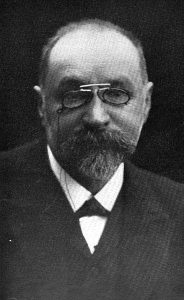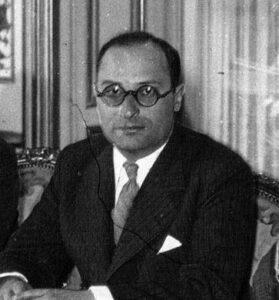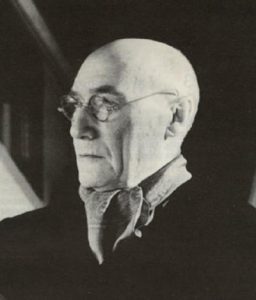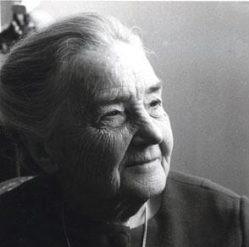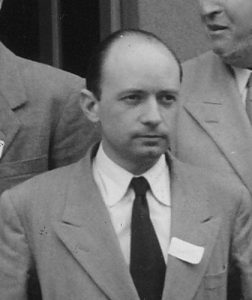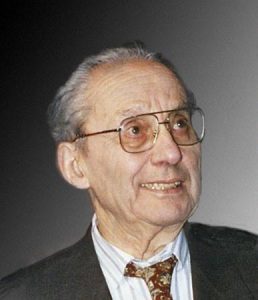His youth
Charles Seignobos was born in 1854 in Lamastre, a focal point for trade in the Haut-Vivarais region. He came from a republican protestant family and his father, Charles-André Seignobos, was the deputy mayor of Privas from 1871 to 1894. He was an outstanding student (he went to the Ecole Normale Supérieure and had the best results at the history “agrégation” exam). Later, he studied for two years in Germany (Göttingen, Berlin, Munich and Leipzig). He was appointed senior lecturer at the university of Dijon and defended his thesis in 1881 ; afterwards he was a lecturer at the Sorbonne. Like his father, he also became mayor of Lamastre. He died in April 1942, having been sent to Ploubaslanec in Britany where his house was under close supervision by the Nazis.
A leading figure of the "methodical" history movement
He was a leading figure of the “methodical” history movement, which was based on a critical analysis of source manuscripts. This approach to history was shared by Gabriel Monod. In the “Manifesto” of the Revue Historique (1876) he called for scientific precision and the ideal of non-religious neutrality, as opposed to the Revue des Questions Historiques which had a catholic royalist tendency close to the Ecole de Chartres. In his Introduction aux Etudes Historiques (1898), Seignobos described the four steps to be followed by any professional historian : collecting documents (heuristics), external criticism with a view to drawing up a descriptive file about the document, internal criticism (hermeneutics) with a view to understanding the author’s ideas – this included distinguishing between what one already knew and any new information to be learnt from the document. Finally, a partial, provisional synthesis in which this document was placed in a larger, more general context.
This “positivist” method is little influenced by the philosophy of history ; it is mainly concerned with political and diplomatic events. Seignobos published a Histoire de France Contemporaine with Ernest Lavisse as co-author. According to Seignobos, it was not a question of establishing a “positive science of historic laws”, rather, he stated that the study of history was not objective : one was easily influenced by subjectivity and one’s imagination as a historian. This is why it was necessary to define “the conditions and processes, the nature and limits of knowledge” and to be cautious in one’s conclusions when analysing a source document.
He had a premonition that history would later be treated as a subject with close links to the social sciences : (in opposition to the statements made by historians of the Annales). In La Méthode Historique Appliqués aux Sciences Sociales (1901), he deplored the fact that social history had not yet been taken seriously as a subject : it was important to consider the material aspect of life, religious belief (different faiths, rites, moral principles) and even events in peoples’ private lives.

